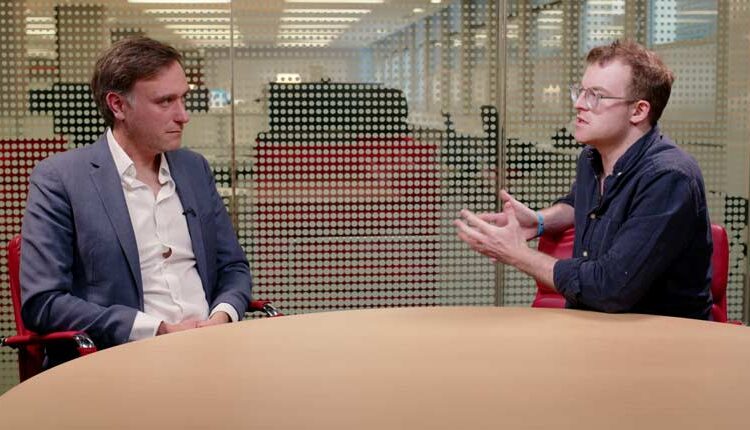Ollie Smith: Now, it’s Thematics Week on Morningstar.co.uk. So who better to grab and get in the Morningstar studio than Kenneth Lamont, our senior analyst for passive strategies to talk about some topical thematics questions. Kenneth, thanks for joining me. First things first, where have thematics done well and where have they done badly? What’s hot? What’s not?
KL: I think before we jump into specifics, it’s worth framing that question in a way that there are some general traits that almost all passive funds have. And one of these is they tend to have a growth bias. It just makes sense. You’re trying to capture some sort of future growth. So these funds tend to do well as a cohort. They sort of move with the fortunes of growth stocks in general, which has seen them perform particularly well in periods like the post-Covid recovery. It’s really knocked it out of the park. I mean, big numbers. But then equally, they suffered some of the worst returns in that sort of tech reckoning that came afterwards, couple of barren years for thematics. So with that in mind, it won’t surprise any of your viewers that the most successful, the theme of the highest returns in 2023 was AI and big data. It was the year that AI went pop, let’s say, in a good way. It won’t be a surprise to anyone, but it’s interesting. One of the fascinating things about thematics is that you can really see trends play out in real time sort of in front of you. So AI was really the big winner of the year. The big loser may surprise some people. This was battery technology. This was sort of the battery stocks really, really suffered with the falling demand from China and sort of oversupply of some of the core inputs to battery technology, such as lithium.
OS: Okay. And just in terms of risk, because I think that’s the sort of optimist case on the one hand for some really exciting trends playing out in real time, as you say. Our understanding of risk is evolving in real time too. So what do investors need to know about the risk of investing in thematics right now?
KL: Well, for a start, many, if not all, thematic funds are risky by design. They’re designed to target very specific risk and return drivers. And that means they’re often highly concentrated baskets of stocks and therefore highly volatile. And every investor in thematics must really understand that before they invest. For example, I just talked about battery technology really suffering last year, but in 2020 it was the best performing theme that we track, returning almost 90% that year, over 90% that year is the theme average that we calculate. So clearly these are very, very volatile, but also there’s specifically there are elements of risk when it comes to thematics that you need to consider over and above just looking at historical volatility as well. And we talked about AI and actually one of the biggest risks to the growth of AI, the profitability of AI is regulation and this is something that hasn’t happened and it’s very difficult to really price incorrectly and no one really knows, but this is a sort of a bus coming through the tunnel in the other direction and we don’t know how that’s going to play out. So looking backwards isn’t going to tell us much about how that’s going to impact the future profitability of AI.
OS: So some uncertainty there. Just quickly and finally then, I mean, do you think this is still an optimist game? I mean, I think a lot of people would invest in thematics because they’d be excited about the future and in particular solutions to the world’s big problems, but there are some reasons to be cautious. On balance, are you still an optimist about thematics or are you a little bit more measured than you were?
KL: No, I actually think that these last couple of years, despite the poor performance of thematics, have actually validated it as a legitimate lens through which to view investments. If you look at what’s been animating global markets over the last sort of 18 months, it hasn’t been geography, it hasn’t been sector, it’s been AI and that’s a theme. And one of the really positive things I would argue is that we’ve seen the clear growth in society, the enthusiasm for this, and it’s actually played through into the performance of the funds that say they’re tracking that theme, which shows, which sort of validates the purpose of that theme. So, I think actually, despite the poor performance, this has actually been a very positive couple of years for thematic investing via funds.
OS: Sure, some transparency, perhaps. Kenneth, thanks so much. For more on thematics, check out Morningstar.co.uk throughout this week where we’ll be publishing content on thematic investing in conjunction with our other European websites. Until next time, my thanks again to Kenneth. I’ve been Ollie Smith from Morningstar.
















